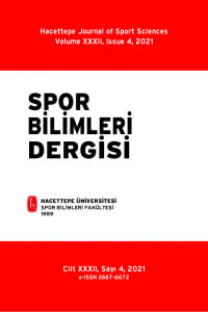The phenomenological ethnographic perspective: A research tool for enhancing the empowerment of the disabled
The phenomenological ethnographic perspective: A research tool for enhancing the empowerment of the disabled
___
- 1. Bourdieu, P. (1977) Outline of a Theory of Practice, Cambridge: Cambridge University Press.
- 2. Bourdieu, P. (1990). In other words: essays towards a reflexive sociology. Cambridge: Polity.
- 3. Campbell, J. and Oliver, M. (1996) Disability Politics: understanding our past, changing our future. London: Routledge.
- 4. Coffey, A. (1999) The Ethnographic Self: fieldwork and the representation of identity. London: Sage.
- 5. Foucault, M. (1973) The Birth of the Clinic: an archaeology of medical perception. London: Routledge
- 6. Hammersley, M. and Atkinson, P. (1995) Ethnography: principles and practice. (Second Edition). London: Rout- ledge.
- 7. Howe, P. D. (2009) ‘Reflexive Ethnography, impairment and the pub’, Leisure Studies. Vol. 28.(4): 489-496.
- 8. Last, M. (1981) ‘The Importance of Knowing About Not Knowing’ Social Science and Medicine. Part B: Medical Anthropology. Vol.15 (3): 387-392
- 9. Marcus, G. and M. Fischer (1996) Anthropology as Cultural Critique: An experimental Moment in Human Sciences. Chicago: University of Chicago Press.
- 10. Merleau-Ponty, M. (1962) Phenomenology of Percep- tion, London: Routledge and Kegan Paul.
- 11. Merleau-Ponty, M. (1965) The Structure of Behaviour, London: Methuen.
- 12. Oliver, M. (1990) The Politics of Disablement. London: Macmillan
- 13. Schutz, A. (1971) ‘The Stranger: an essay in social psy- chology’ in A. Broderson (ed.), Alfred Schutz: Collected Papers II: Studies in Social Theory. The Hague: Martinus Nijhoff. Pp. 92-105.
- 14. Schutz, A. (1973) ‘Concept of Theory Formation in the Social Sciences’ in M. Natanson (ed.), Alfred Schutz: Collected Papers II: The Problem of Social Reality The Hague: Martinus Nijhoff.
- 15. Silva, C. F. and Howe, P. D. (2012) ‘Difference, Adapted Physical Activity and Human Development: Potential Contribution of Capabilities Approach’ Adapted Physical Activity Quarterly. Vol. 29 (1) 25-43.
- 16. Zola, I. (1981) Missing Pieces: A Chronicle of Living with a Disability. Philadelphia: Temple University Press.
- Başlangıç: 1990
- Yayıncı: Süleyman BULUT
Perception of disability and physical activity
Inclusion: What is needed to make it work for all children with disabilities
Leadership in adapted physical activity in Turkey
Analysis of Centre of Pressure in The Standing Position in Young Adults withDown Syndrome
Nuria MASSO-ORTIGOSA, Lourdes GUTIERREZ-VILAHU, Ferran REY-ABELLA, Lluis COSTA-TUTUSAUS, Myriam GUERRA-BALIC
Progressive inclusion: APA from a sociological perspective
Human Postural Stability During Dog Walking by Adults with Intellectual Disability
Eliane Mauerberg-de CASTRO, Carolina Paioli TAVARES, C. Bruna PERICO, B. Mayara PESTANA, A. Larissa PORTO, D.A. Thais COSTA
Active Video Games as an Adjunct to Physical Therapy for Children with Cerebral Palsy
E. Jean BURROWS, F. Kendal ALSTON, Jeff ROLLAND, Sara SHERIDAN, Lynneth STUART-HILL, A. Viviene TEMPLE, P. Lynn PURVES
Volleyball with a Butt : I Am Jumping Inside!'
